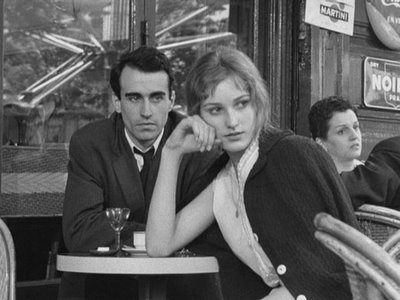Gwyneth Paltrow is getting a divorce, and at first, I couldn’t have been happier.
Actually, wait, no—that sounds terrible.
Let’s start over.
According to her website, she and Chris Martin are going through a “Conscious Uncoupling,” which focuses on taking responsibility for their own thoughts, feelings and reactions as they end their marriage. It requires letting go of blame. It asks them to see that “every irritation and argument was a signal to look inside ourselves and identify a negative internal object that needed healing.”
While the dissolution of a union is a sad affair, I was really excited that these “conscious” ideas were getting mass promotion with Hollywood star power.
I know some people view the concept of “Conscious Uncoupling” as pretentious and new-agey. However, as a culture we tend to blame, attack and avoid those with whom we have challenges. I was glad to see two influential individuals attempting to use one of most challenging times in a relationship to cultivate compassion, understanding and personal growth.
Yet, after some reflection, I found it somewhat bizarre that the concept of “being conscious” was being used solely in regards to the ending of a relationship.
It’s great that couples are being urged to be more conscious during divorce or separation, but why start only after things are irreparable?
Conflicts and challenges are an extremely common part of any relationship—healthy or unhealthy—whether it’s with a romantic partner, a family member, a friend or co-worker. I’d like to think we can take steps to address all conflicts consciously, no matter the relationship or the stage that it is in.
While I don’t think that every relationship can (or should) last forever, I do believe that being more conscious of how we engage with one another, especially during conflicts, can do a lot to create more sustainable and enjoyable connections.
Here are some insights I’ve found helpful for having more conscious conflict—in any relationship.
1. You Can’t Control the Other Person
Stop wasting your time.
I know, I know. This one’s hard, and you’ve probably heard it before. But as long as your goal is tied up in controlling the other person in some way, you’re going to have a bad time.
The fact is that everyone has their own set of values, perspectives, attitudes, beliefs and experiences. They won’t always see eye-to-eye with you, or act how you think they should—which can be immensely frustrating.
However, if you can accept their autonomy, you’ll instantly (and paradoxically) feel more peaceful.
Why?
Because you’ll stop wasting your energy on lost causes and be freed up to focus on what you can control. Yourself.
2. Your Inner State Influences Your Perceptions and Reactions
You are not a puppet.
At first, this one also seems annoying to accept. When we feel upset about something someone said or did, we want to blame them—not take responsibility for our feelings.
But hear me out.
Ever notice how when you’re in a really good mood, you’re a lot less likely to get riled up by minor annoyances than when you’re tired or stressed? One day a driver cuts you off in traffic and you just roll your eyes and let it go. Another day you might seethe with rage for the rest of the trip.
The outside stimulus isn’t different, you are.
Typically, others’ actions don’t upset us as much as how we interpret those actions. On a good day, you might perceive the other driver as stressed or late for work, and choose to have compassion for them. Another day you might see the driver as rude and reckless, and feel personally disrespected by them.
The point is, other people and events influence our thoughts, feelings, and actions, but they don’t cause them.
There’s good news in all of this—you have free will.
You’re not some puppet on a string that someone else can pull around. If you notice that you don’t like how you are thinking, feeling or reacting, you have a lot of power to change it.
No matter the situation, your inner state has at least as much ability to guide the outcome as the external events do.
3. Being Mindful Decreases Destructive Responses
The less reactive you are, the more power you have.
It’s common to experience a lot of unpleasant thoughts and feelings during a conflict. These thoughts and feelings may get so overwhelming and uncomfortable that we become reactive and lash out in ways that are not helpful.
While you can’t always choose your thoughts (don’t think about a purple cow! See?) or feelings, you can control how you respond to them.
This requires mindfulness, which is simply the practice of observing what is happening without attachment or judgment. When we let ourselves observe our own thoughts and feelings in this way, we start to gain some distance from them. We recognize that while we have these thoughts and feelings, they’re not who we are.
“You are the sky. Everything else—it’s just the weather.” ~ Pema Chodron
From this place of awareness, we become less reactive. We gain the ability to consciously choose to release thoughts and feelings that don’t serve us, cultivate ones that do and take more skillful and intentional action.
4. Another Person’s Behavior Should Not Determine Your Own.
Align your actions with your core self.
All too often in conflict, we fall into what is known as a “retaliatory spiral.”
We attempt to give them a taste of their own medicine, teach them a lesson and show them that two can play this game.
In our minds it all seems justifiable—they hurt us, so now it’s our turn to hurt them back.
But if we look deeper, it’s kind of insane. We’re basically modeling our own behavior after behavior of which we disapprove. Essentially, we’re strengthening what we don’t want, instead of creating what we do.
Conscious conflict isn’t about getting your way or gaining power over another. It’s about mindfully engaging in a way that is aligned with your core values, desires and purpose, regardless of how the other person behaves.
When someone does something that upsets you, don’t base your actions on what they do.
Step back, remind yourself of who you really are and what you really want, and then engage in a way that you can be proud of, no matter what the outcome.
And sometimes, the outcome will still be painful. Being conscious doesn’t mean you always get what you want, that every relationship will be healthy forever or that life becomes endlessly simple; but it does mean that you can act with skill, wisdom, compassion and integrity.
There’s no reason to wait until disaster strikes to start.
Love elephant and want to go steady?
Sign up for our (curated) daily and weekly newsletters!
Apprentice Editor: Brandie Smith / Editor: Renée Picard
Photo: Ed Yourdon/Flickr Creative Commons

 Share on bsky
Share on bsky





Read 0 comments and reply